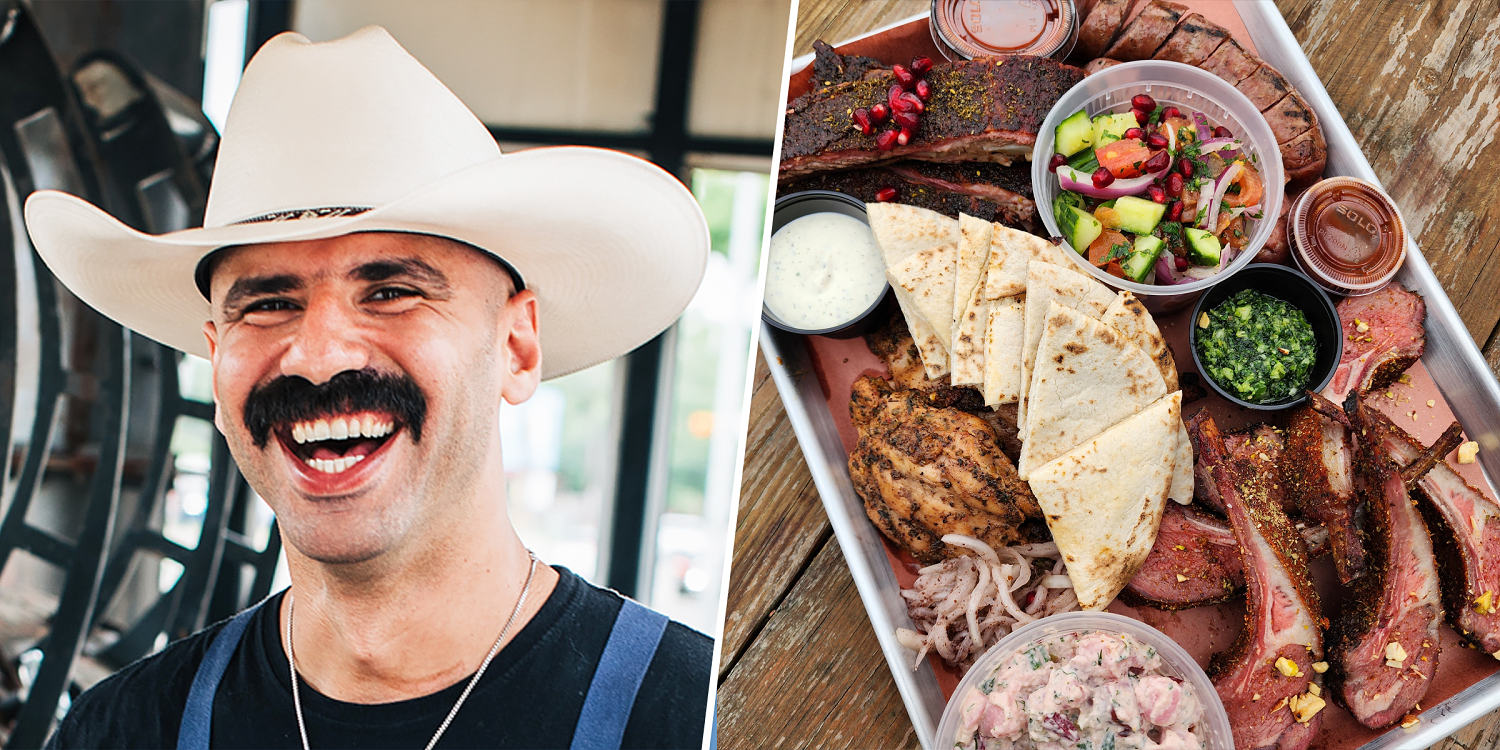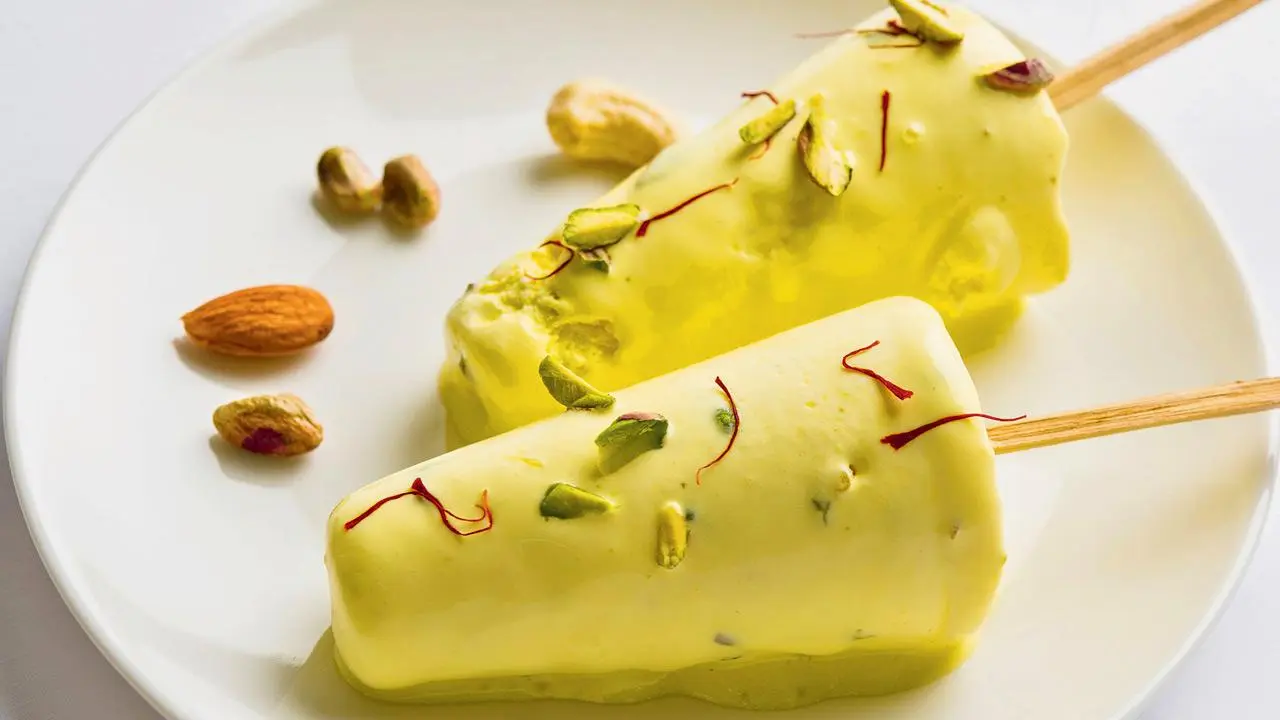It’s a classic day in New York City: The subways are delayed, one of us gets on going in the wrong direction, and we both end up arriving more than 15 minutes late for a food tour. Only, we’re not here to talk about New York grub at all — today, it’s all about Egyptian food and Texas barbecue. , founder and pitmaster behind Egyptian barbecue restaurant , is visiting New York, and on his last full day, he wanted to spend a few moments with me exploring Little Egypt in Queens.
Five-and-a-half hours, six-plus eateries and three grocers later, we find ourselves in conversation about everything from his mother’s cooking to his love of brisket and spilling an obscenely large to-go cup of Turkish coffee. El-Ghayesh is a Texan, but he was raised in Cairo, Egypt. It wasn’t until he visited a friend in Austin in 2012 that fell in love with the state known for doing it big.

El-Ghayesh was a financial analyst at the time, just 24 years old and quickly climbing the corporate ladder. When his friend took him to straight off the plane, the soon-to-be chef got his first taste of his new life. It was the flavors, yes, but it was also the culture and the unassuming familiarity that first drew him to both the craft and the city.
The Egyptian businessman returned to Cairo wanting to open up a barbecue joint in his home city — but plans changed. He wound up back in Texas, working for free and studying under any pitmaster that would have him. He learned about sauces and rubs, techniques and specialty cuts, and developed a deep understanding — and an even deeper love — of barbecue.
He tells me about his travels back and forth between the Lone Star State and Cairo as we tear cat ear-shaped pieces of pita to scoop up baba ghanoush, salads, fried calamari and singari fish at . Tangy beets are juxtaposed against savory grilled dorado dusted in wheat bran on our plates as he talks about the clashing and melding of his Middle Eastern culture with that of the American restaurant industry. We put our forks down in favor of “eating like an Egyptian,” using our hands, just as the budding chef seamlessly picked up a cowboy hat and boots all those years ago.
Our calamari is crispy and dusted with brick-red spices while our butterflied, marinated and grilled branzino was swimming in the juices of tomato and onion — it is the perfect way to kick off this food-lovers marathon. Walking down Astoria’s famed Steinway Street, we duck in and out of eateries, intentionally deliberating our next bite. El-Ghayesh considers the atmosphere as well as the menu, moving us in and out, depending on which vibes hit.
We cut across to juice shop . Staring at a menu filled with the classic sips he knew from his childhood written alongside Americanized selections (peanut butter smoothies aren’t a thing where he’s from), we settle on two of his favorites: mango and sugarcane. “Staples are sugarcane, mango; orange, of course,” he says, adding that the beet and carrot juice looked good, though it’s not traditional in Egypt.
I am on a flavor trip back to his childhood neighborhood as he reminisced, feeling like it was a hot day in the desert rather than a windy afternoon in Queens. We make our way to , where we get a taste of the famed pizza-like Egyptian dish. The salty, thinly sliced, spiced meat inside is mixed with cheese, olives and tomatoes.
Since he was young, El-Ghayesh loved to interact with food. He says his first experience in the kitchen was with his mom, who would give him the space to play with ingredients. She let him “mix so much stuff together, and it would be bad — it didn’t work,” he says.
But he would do it and eat it anyway. Now, that practice serves as inspiration for the most popular item on his KG BBQ menu: a rice bowl. “It’s almost a representation of how I eat,” he says.
At 19 years old in Cairo, El-Ghayesh started to host dinner parties for friends where he would cook Chinese and Western foods, and even “got into a big wings phase.” “I didn’t really cook any Egyptian because, of course, why would I? My mom makes the best food,” he says, matter-of-factly. After his first trip to Texas, the cuisine became focused on barbecue.
He found a Weber grill and asked his local Cairo butcher for a brisket. “No retail customer would ever ask for this,” El-Ghayesh says, explaining that this request for a tough cut of meat was completely unheard of in a city known more for open fire cooking than lengthy smoking. Theirs turned into a beautiful relationship where the butcher would teach El-Ghayesh how to break down meats, and the chef would host his purveyor for dinners.
After realizing how much he was spending on these supper clubs now that large cuts of meat were involved, he started building a payment structure allowing him to continue cooking without blowing through his wallet. Through these small events, El-Ghayesh got a taste of serving folks — and he soon craved more. Austin, he says, is a hippie town at heart.
It’s quirky and was ready to embrace this Egyptian cowboy from the jump. Though, El-Ghayesh says, it’s changing — becoming a more watered-down version of itself as folks relocate there from other U.S.
cities, thanks to major given to tech companies. Through sports leagues and dancing group chats, the chef has created a community for himself that helps Austin feel like home. But as we stroll through one of at least seven Egyptian markets on the street, it’s clear there are still little crumbs he misses about having such easy access to the ingredients and brand-name goods he loves from Egypt.
At Al Hanaa market, he points out the jars of lupini beans his mother would always buy and the brand of bread he often eats in Cairo, and tells me about the different deli meats, including bastirma — which he describes as similar to pastrami, just dryer — that he simply can’t find in his Southern city. After perusing the aisles of Al Dar Halal Market to find something to bring back to his team in Austin, El-Ghayesh decides he’s ready for something sweet. We double back up the street to Al-Sham Sweets & Pastries, stopping along the way for a Turkish coffee from .
We survey the pastry case, and El-Ghayesh places his order in Arabic, stopping every few moments to translate for me what he was getting: , kahk, ghraybeh and about six other things that he isn’t sure about but decided to throw into the mix anyway. He asks me what I thought, and I give my opinions on which pastries looked delicious enough for him to bring back for his crew. The young man behind the counter hands him a to-go box that’s too large to comfortably carry on the subway and a separate small plastic tray filled with around 12 pastries.
El-Ghayesh hasn’t been asking my opinion for the sake of his employees. In a move that any Middle Eastern person — and, according to him, anyone from Austin — would find customary, the Egyptian cowboy is thanking his host. He wants me to share in the delights of these foods with him, just as he wants his customers at KG BBQ to revel in the flavors and ingredients of his hometown’s cuisine.
“This is my goal now,” he says as we sip our juices inside Hemo’s. “To bring the culture to Texas.” El-Ghayesh is buckling down so he can grow.
With a James Beard Award semifinalist nomination, a Michelin Bib Gourmand nod and a season of Netflix’s “Barbecue Showdown” under his belt, KG BBQ is busy with regulars and out-of-towners alike. While it’s beloved as the truck it is now, El-Ghayesh wants a brick-and-mortar restaurant. He says his father — who died in 2012 right before El-Ghayesh first traveled to the U.
S. — is a huge inspiration. He played a part in his business degree as well as his young career as a chef; when his father would have friends over, he’d ask his son to cater.
El-Ghayesh is also aiming for a cookbook deal in the not-too-distant future. The Egyptian cowboy has a story to tell, and, much like the root of his supper club days, he wants to share his food — all of it — with everyone. Rachel Askinasi is a freelance food writer for TODAY.
com. She covers the food industry including restaurants, trends, agriculture, industry news and more. Rachel was previously Business Insider's resident food reporter, Food vertical lead at The Messenger, and has written for various digital and print magazines.
You can reach her on Instagram at ..
Food

This Egyptian pitmaster is fusing Texas barbecue with Middle Eastern flavors

Self-described "Egyptian cowboy" Kareem El-Ghayesh, founder and pitmaster behind KG BBQ in Austin, is infusing Middle Eastern flavors into Texas barbecue.















